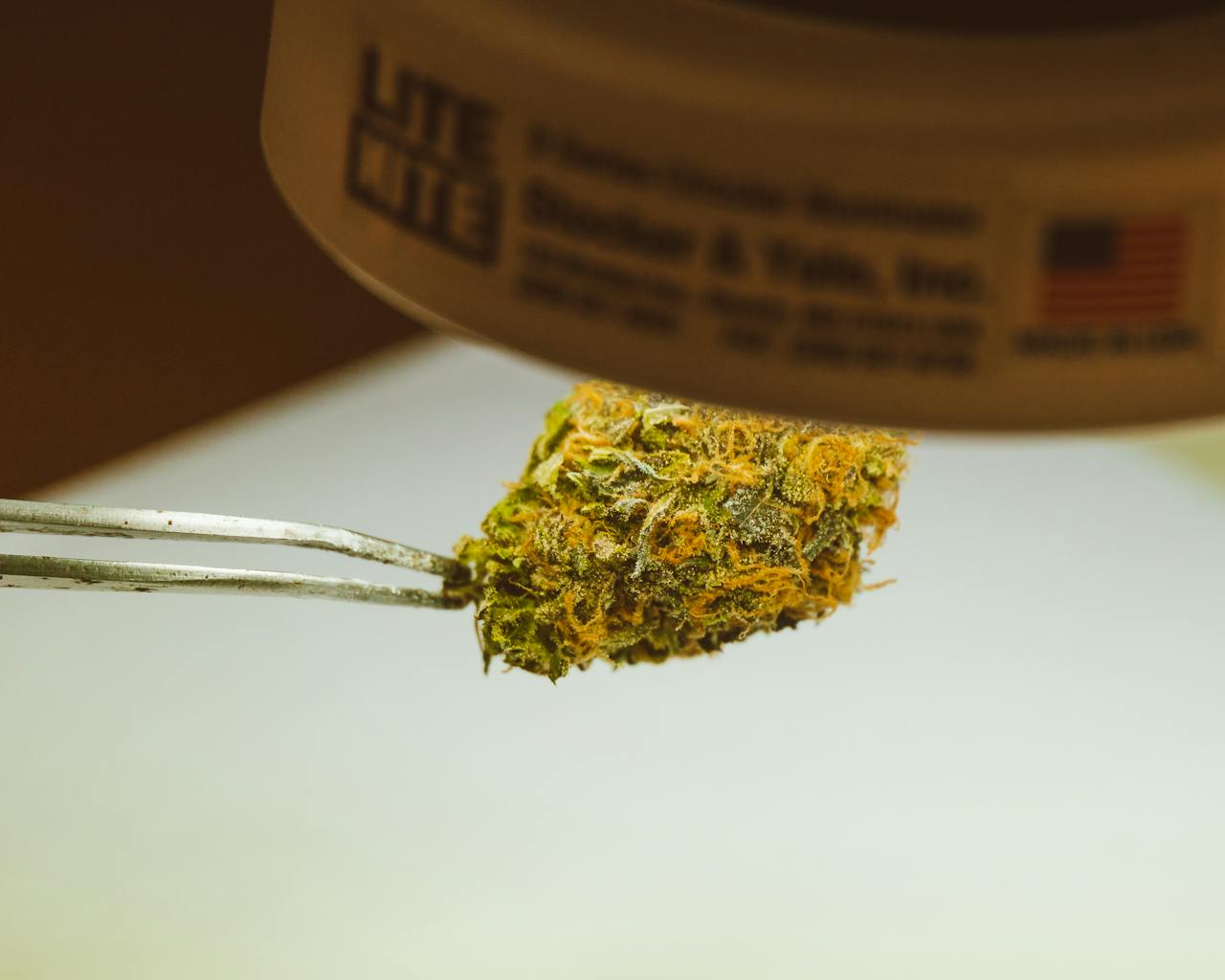Cannabis
Thailand’s Prime Minister Wants to Ban Cannabis Two Years After Decriminalization
Thailand made history in June 2022 by legalizing cannabis, a progressive move in Asia. However, Prime Minister Sretta Thavisin’s recent proposal to ban cannabis again sparked controversy, citing concerns about youth access and associated crime. Initially seen as an economic boon, lax regulations led to social issues, prompting calls for stricter controls, potentially impacting tourism and retail sectors.

Thailand, in June 2022, gained the historic title of the first country in Asia to legalize cannabis. This landmark step was seen as a signal of a change in the approach to drug policy in a region that has traditionally been characterized by strict regulations.
However, Prime Minister Sretta Thavisin’s recent announcement of his intention to once again ban cannabis is controversial. Prime Minister Thavisin expressed concern about youth access to cannabis and the associated increase in crime, suggesting a possible retreat from progressive reforms.
Background to cannabis legalization in Thailand
The legalization of cannabis in Thailand was the result of intensive efforts by the Bhumjaithai Party, which saw it as an opportunity to revitalize the economy in poorer regions of the country. The party, which enjoys strong support in Thailand’s poor northeastern region, promised that cannabis would become a profitable new agricultural product.
Since cannabis was legalized, more than 1.1 million Thais have registered for licenses to grow it, and more than 6,000 cannabis dispensaries have appeared across the country, many of which are subject to little quality control.
Promoted as both a medical and recreational resource, cannabis was expected to bring significant financial benefits to farmers. Unfortunately, the initial regulations turned out to be insufficient. The market, although intended to be limited to medical applications, operated virtually without any restrictions, which contributed to the current problems.
Issues leading to the proposed reversal
The opening of the cannabis market in Thailand, although initially greeted with enthusiasm, quickly began to generate serious social problems. Most disturbing were reports indicating easy access to cannabis for minors. Without sufficient regulation, cannabis became available to children, sparking a public outcry. Furthermore, related crimes, such as black market trading and related acts of violence, have increased significantly.
Reports from the Ministry of Health revealed that in just one year after decriminalization, the number of people seeking medical help for cannabis-related mental health problems increased from 37,000 in 2022 to over 63,000 in 2023. This increase in demand for treatment has complicated an already strained health care system, raising public concerns about the nation’s health.
Political and economic implications
After the elections in May 2023, Thailand came under the rule of a new conservative coalition, which significantly changed the national political landscape. Major political parties, including Bhumjaithai, that originally supported the legalization of cannabis have changed their approach, limiting its use to medical purposes only. This change in position is a reflection of the growing concern for public health and safety, but also a response to the mood in society.
From an economic point of view, the proposed restrictions could have significant consequences for the tourism and retail sectors, which have rapidly developed thanks to the new, liberal law. Thailand has become a popular tourist destination for cannabis lovers, generating significant revenues from tourism and retail. Drastically limiting legal access to cannabis may weaken these newly established economic sectors that have contributed to the growth of incomes of local communities.
Current proposals and legal changes
In response to growing public concerns, Prime Minister Srettha Thavisin has proposed new regulations that aim to limit the use of cannabis to solely medical purposes. New regulations to be introduced by the Ministry of Health provide for restrictive controls and strict licensing of both cultivation and distribution.
The legal changes are also expected to introduce tough penalties for recreational use of cannabis, including fines of up to 60,000 baht (about 1,560 euros) and prison sentences of up to one year. This is a stark departure from previous policy, where cannabis use was virtually unregulated. The difference between medical and recreational use therefore becomes a key element of the new proposals.
Fines of up to 100,000 baht (2,600 euros) are also proposed for advertising or marketing cannabis for recreational use. Carrying out agricultural activities without a license is punishable by one to three years in prison or a fine of 20,000 to 300,000 baht (520 to 7,780 euros). The rules regarding cannabis stores and home cultivation are not yet clear.
Impact on tourists and the future of cannabis in Thailand
Under the new legal regime, tourists planning to visit Thailand are advised to carefully review current cannabis laws.
While Thailand waits for the outcome of the changes, cannabis shops are still open across Bangkok and beyond. However, there are already some rules in place restricting the use of cannabis. Smoking and vaping in public places is prohibited. Disturbing public order, including through the smell of weed, can result in a fine of 25,000 baht (650 euros).
These changes may significantly impact the tourism industry, which has benefited significantly from liberalization of access to legal weed in recent years. The potential tightening of regulations will likely limit Thailand’s attractiveness as a tourist destination for cannabis lovers. In the future, strict enforcement of new regulations could change the way Thailand is perceived internationally as a tourist destination and a space for liberal reform.
__
(Featured image by Jess Loiterton via Pexels)
DISCLAIMER: This article was written by a third party contributor and does not reflect the opinion of Born2Invest, its management, staff or its associates. Please review our disclaimer for more information.
This article may include forward-looking statements. These forward-looking statements generally are identified by the words “believe,” “project,” “estimate,” “become,” “plan,” “will,” and similar expressions. These forward-looking statements involve known and unknown risks as well as uncertainties, including those discussed in the following cautionary statements and elsewhere in this article and on this site. Although the Company may believe that its expectations are based on reasonable assumptions, the actual results that the Company may achieve may differ materially from any forward-looking statements, which reflect the opinions of the management of the Company only as of the date hereof. Additionally, please make sure to read these important disclosures.
First published in FaktyKonopne. A third-party contributor translated and adapted the articles from the originals. In case of discrepancy, the originals will prevail.
Although we made reasonable efforts to provide accurate translations, some parts may be incorrect. Born2Invest assumes no responsibility for errors, omissions or ambiguities in the translations provided on this website. Any person or entity relying on translated content does so at their own risk. Born2Invest is not responsible for losses caused by such reliance on the accuracy or reliability of translated information. If you wish to report an error or inaccuracy in the translation, we encourage you to contact us

-

 Crypto7 days ago
Crypto7 days agoRipple Launches EVM Sidechain to Boost XRP in DeFi
-

 Africa2 weeks ago
Africa2 weeks agoCôte d’Ivoire Unveils Ambitious Plan to Triple Oil Output and Double Gas Production by 2030
-

 Impact Investing2 days ago
Impact Investing2 days agoShein Fined €40 Million in France for Misleading Discounts and False Environmental Claims
-

 Business2 weeks ago
Business2 weeks agoThe TopRanked.io Weekly Digest: What’s Hot in Affiliate Marketing [NordVPN Affiliate Program Review]

























